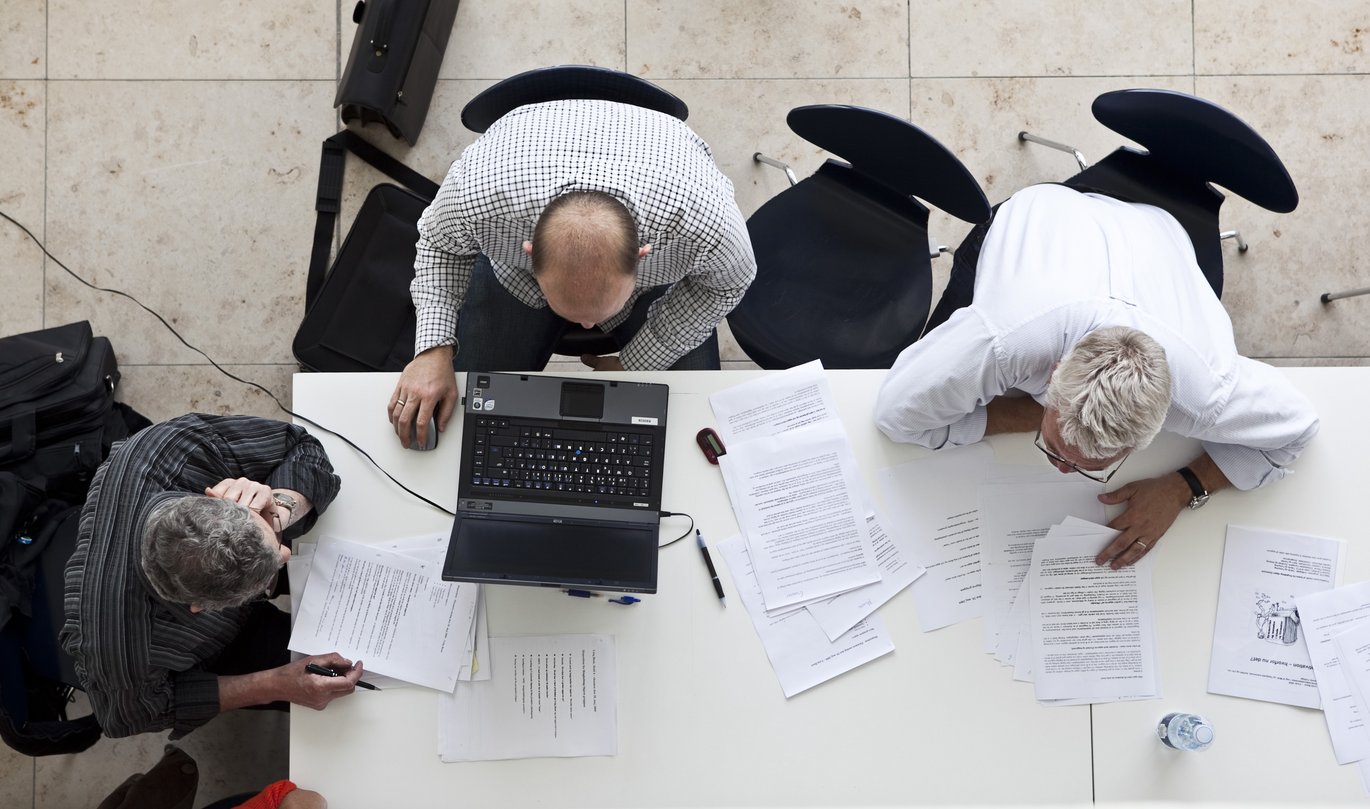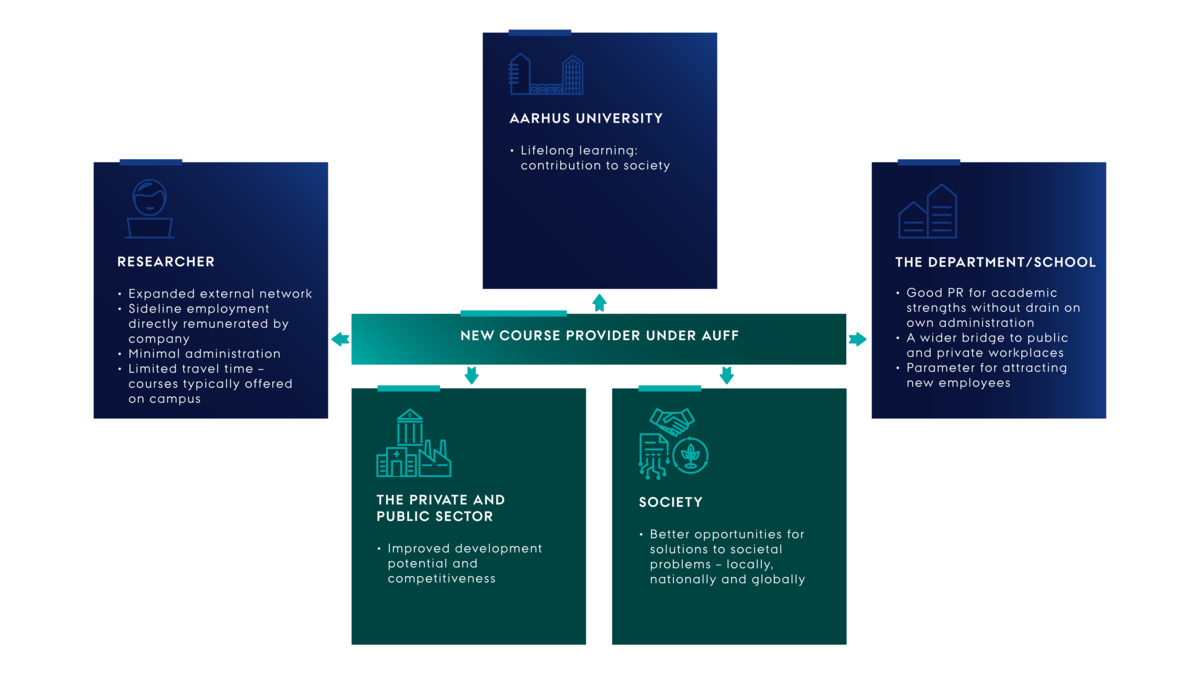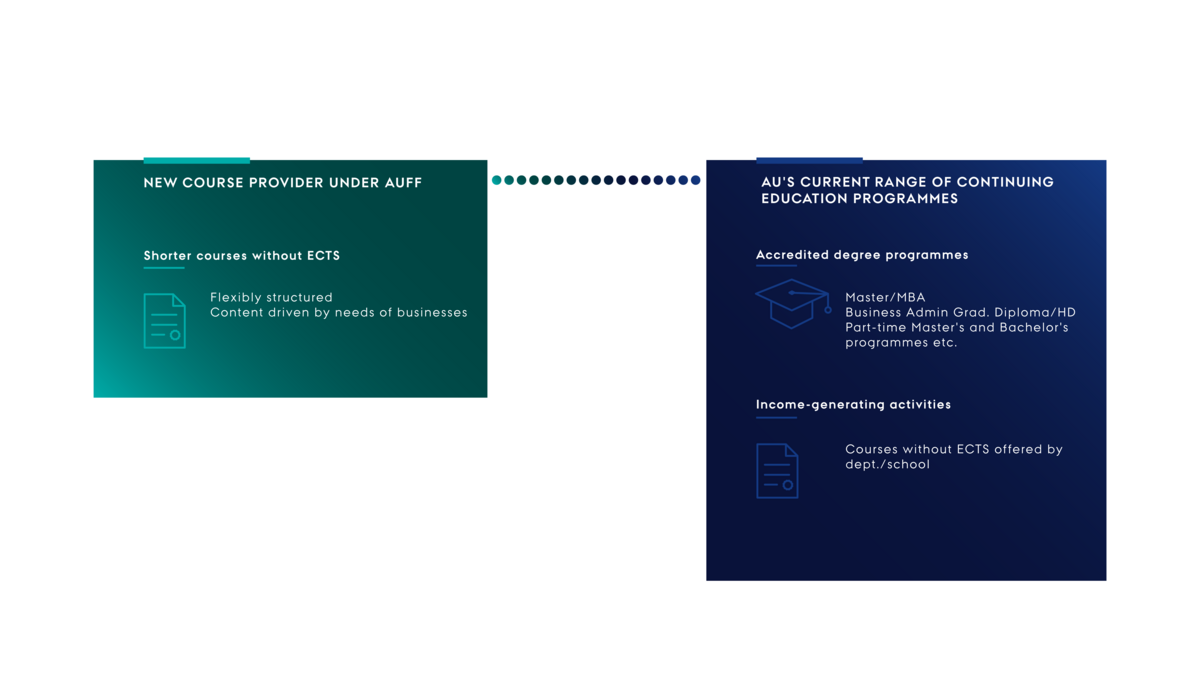New course initiative provides an additional opportunity to support lifelong learning
A new course provider under the AUFF will give departments and researchers an extra opportunity to offer continuing education courses aimed at professionals in the public and private sectors.

Soon it will be easier for departments and researchers to say yes when companies and organisations ask them for flexible and targeted continuing education courses. In close collaboration with Aarhus University, the Aarhus University Research Foundation is launching a new course initiative, which will offer a wide range of short research-based courses on topics such as digitalisation, technology, sustainability, the green transition and management.
The new company will focus on short courses without ECTS credits, which will have a flexible structure and will reflect the professional needs of public and private sector employees. Rector Brian Bech Nielsen welcomes the prospect of researchers providing a further skills boost to professionals in the public and private sectors through the new course company, which has the backing of the AU Board.
“With this course initiative, we hope to pave the way for more research-based, flexible and dynamic competency development in our fast-moving society. This new independent course provider will give departments and individual researchers an optimal framework to offer courses of the highest academic quality without having to allocate many resources to administration,” says Brian Bech Nielsen, who encourages researchers across all of AU’s faculties and geographical locations to explore its potential.
We hope to pave the way for more research-based, flexible and dynamic competency development in our fast-moving society.
Brian Bech Nielsen
Easier for researchers and departments to offer courses
Many departments and faculties already offer continuing education courses – both accredited degree programmes (such as professional Master’s programmes and diplomas) and shorter courses that generate income. They may continue to do so, because the new initiative is simply an additional teaching opportunity. Head of the Department of Computer Science Kaj Grønbæk sees great potential in the new scheme.
“We often receive enquiries from companies and public institutions looking to expand their knowledge and take courses on relevant topics such as artificial intelligence, data analysis, cybersecurity and augmented reality. But our department doesn’t have the resources to run a traditional open university scheme at the level required to meet demand. So we believe that setting up an independent course provider which can offer short and targeted courses is the best way to help more of our researchers stimulate innovation and growth in workplaces across the country,” says Kaj Grønbæk.

Alums confirm the need for continuing education courses
Aarhus University has reached out to its own alums to learn more about their competency development needs and preferences.
Of the over 1,000 alums who responded, many expressed a clear desire to invest time and money in professional development – at both staff and management level.
They expressed a need for courses in areas such as the green transition/sustainability, digitalisation and leadership skills, as well as a preference for in-person teaching.
Courses will be driven by the needs and demands of professionals in the public and private sectors. All the university’s areas of expertise can be brought into play, and the first courses are expected to be offered in autumn 2024. Professor Annabeth Aagaard from the Department of Management at Aarhus BSS has joined forces with other professors at the department to identify topics for the first courses to be offered, which include ESG reporting, AI in business processes, global strategies and organisational design in changing times.
“We have knowledge which is in demand, and we have the ideas and teaching skills to bring this knowledge into play. I’m looking forward to collaborating with the new course company. I see it as a really good opportunity to get my research out to more people and to help boost professional development in Danish society,” says Annabeth Aagaard.
During the spring, work will begin on developing the course programme, recruiting a director, and putting together a secretariat and a board.
- The position of director is currently being advertised, and it is hoped that the new director will start work on 1 May 2024.
- You are welcome to contact Project Manager Birgitte Højland (birh@au.dk) to discuss any ideas and input.
See more at International.au.dk
